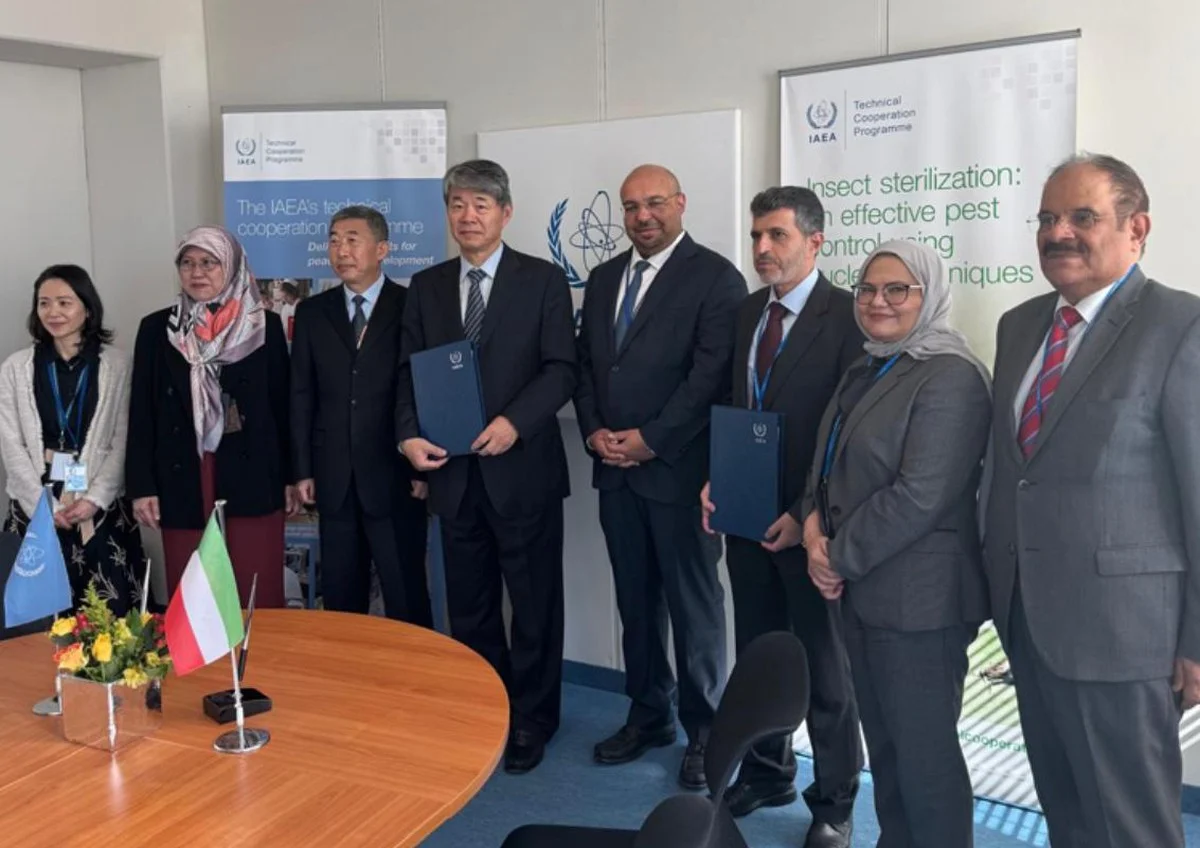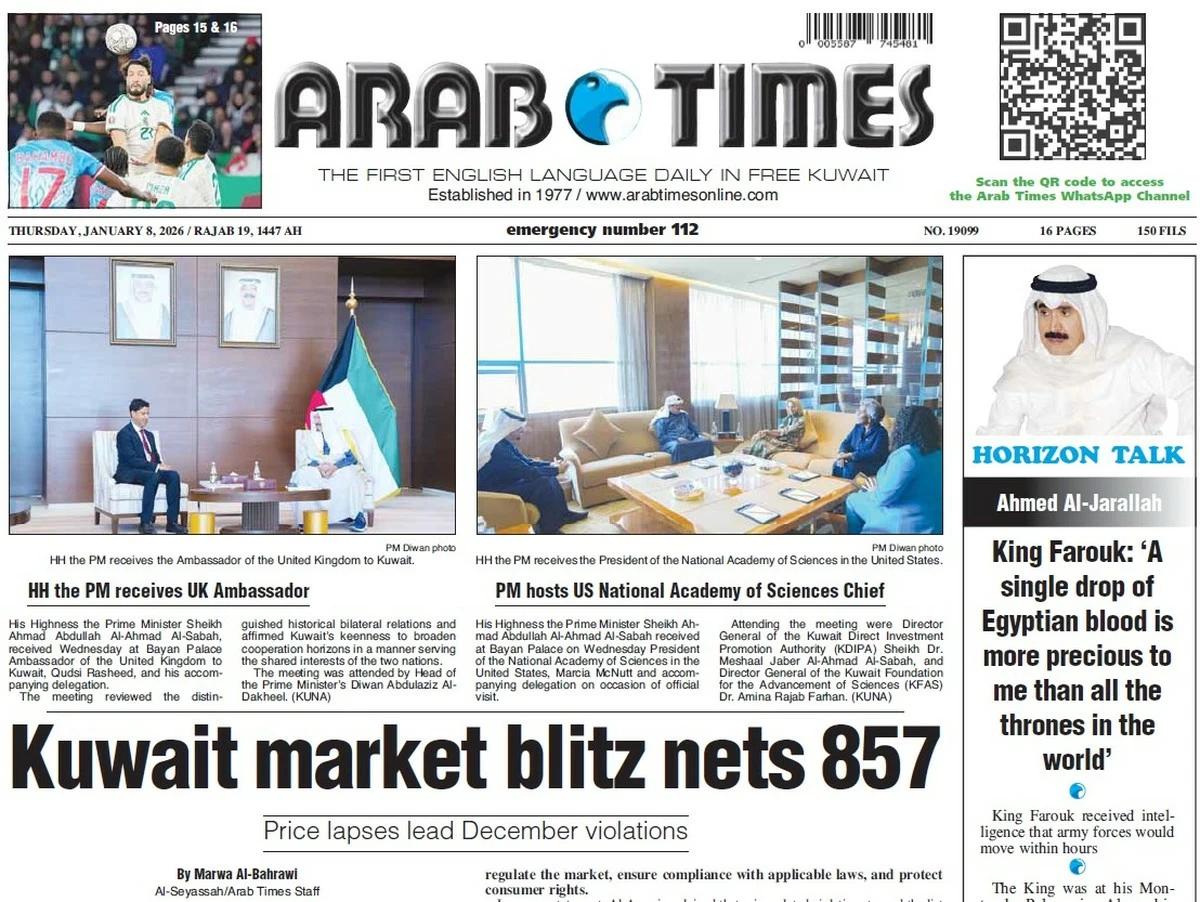20/09/2025
20/09/2025

VIENNA, Sept 20: Kuwait has inked three new agreements with the International Atomic Energy Agency (IAEA) at the conclusion of its 69th Annual Conference, marking a significant boost to the country’s nuclear research and regional cooperation efforts. The announcements were made by Dr. Faisal Al-Humaidan, Director General of the Kuwait Institute for Scientific Research (KISR), during the event on Friday.
The agreements include the Fourth Framework Plan for Technical Cooperation covering 2026 to 2035, along with two reappointments of KISR as an IAEA Collaborating Centre until 2028. One center will focus on environmental radiation monitoring, and the other on combating marine pollution, strengthening Kuwait’s role as a regional hub in these fields.
Dr. Al-Humaidan told the Kuwait News Agency (KUNA) that these new agreements extend and support the implementation of nine ongoing projects with the IAEA, in addition to eight regional projects. He expressed gratitude toward the Asia-Pacific Cooperation Department for its vital role at the regional level.
Among five new projects approved for the 2026-2027 cycle are studies on coke agglomeration’s impact on reactor performance, food safety improvements, establishing a national laboratory for neutron analysis, and groundwater pollutant monitoring. Continuing work on a cancer treatment initiative is also funded, with a budget nearing 600,000 euros.
Kuwait currently hosts three regional IAEA service and cooperation centers specializing in medicine, marine environment, and radiation protection. The Environment and Life Sciences Research Center at KISR has been redesignated as a cooperation center for monitoring radioactive contamination in seas from 2025 to 2028. Furthermore, the Laboratory for Radioactivity Measurement has been approved as a regional resource center within the Arab States in Asia group (ARASIA), bringing Kuwait’s tally of IAEA centers to four.
Dr. Al-Humaidan highlighted the critical role of the IAEA’s National Technical Cooperation Program in developing Kuwait’s national capacities and advancing peaceful nuclear technologies. The national program presently covers five projects, plus four new initiatives launched in January 2025, focusing on mutagenic crop production, freshwater studies in groundwater aquifers, cancer treatment, and marine microplastic pollution monitoring.
Additionally, Kuwait participates in eight regional projects under the Cooperation Agreement for Arab States in Asia (2024-2025) targeting environmental, agricultural, and health sectors. Kuwait has also proposed establishing a regional seed bank to combat climate change effects, working alongside KISR experts to explore the feasibility of a seed bank dedicated to conserving climate-resilient seeds using nuclear technologies.
On the sidelines of the conference, the Kuwaiti delegation held productive talks with the IAEA’s Safeguards Department and experts, reaffirming Kuwait’s commitment to submitting all reports related to the Additional Protocol and small quantities of nuclear material. Both parties agreed to enhance cooperation across various fields.
Dr. Al-Humaidan emphasized Kuwait’s ongoing dedication to deepening collaboration with the IAEA, particularly in peaceful applications of nuclear science and technology, and strengthening human and institutional capacities. He praised Ambassador Talal AlFassam, Kuwait’s Permanent Representative to Vienna, for his significant efforts in bolstering Kuwait’s cooperation with the agency.
Separately, Dr. Habiba Al-Munaie, a researcher involved in the program, reaffirmed Kuwait’s continued partnership with the IAEA in nuclear security, based on the Integrated National Nuclear Security Plan (INSNP). She described the plan as a cornerstone for establishing a robust, sustainable nuclear security infrastructure in the country.
Dr. Al-Munaie noted that INSNP’s implementation enhances institutional, human, and technical capabilities, including monitoring radioactive sources, national response readiness, illicit trafficking prevention, and border security. A recent review meeting of the plan in early 2025 saw the participation of all relevant stakeholders, showcasing Kuwait’s firm commitment to upholding stringent nuclear security standards and developing advanced national safety procedures.


